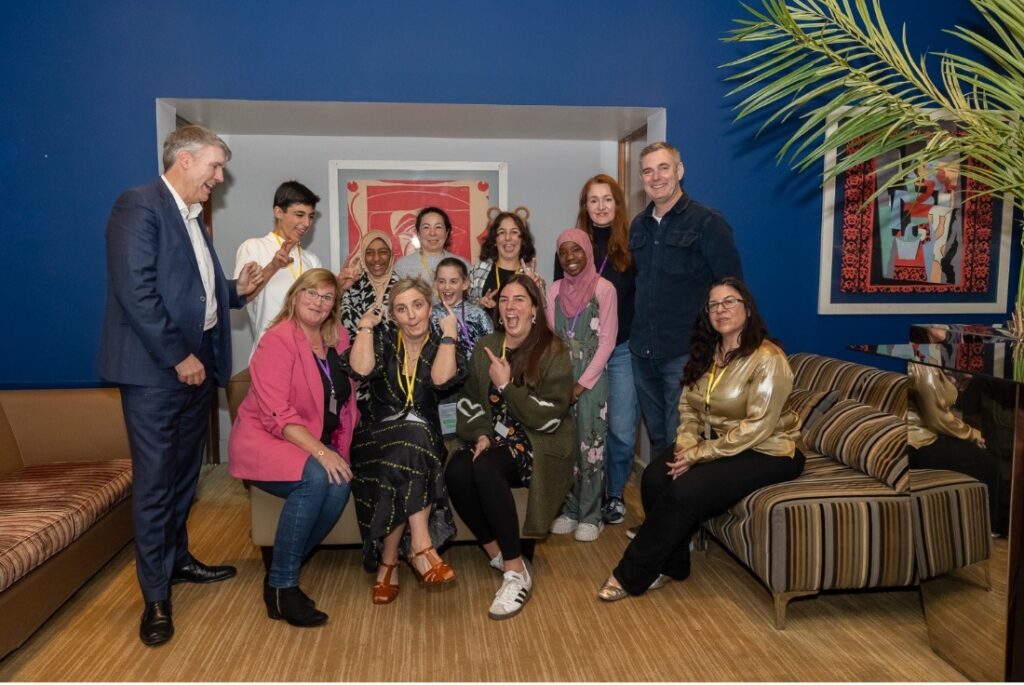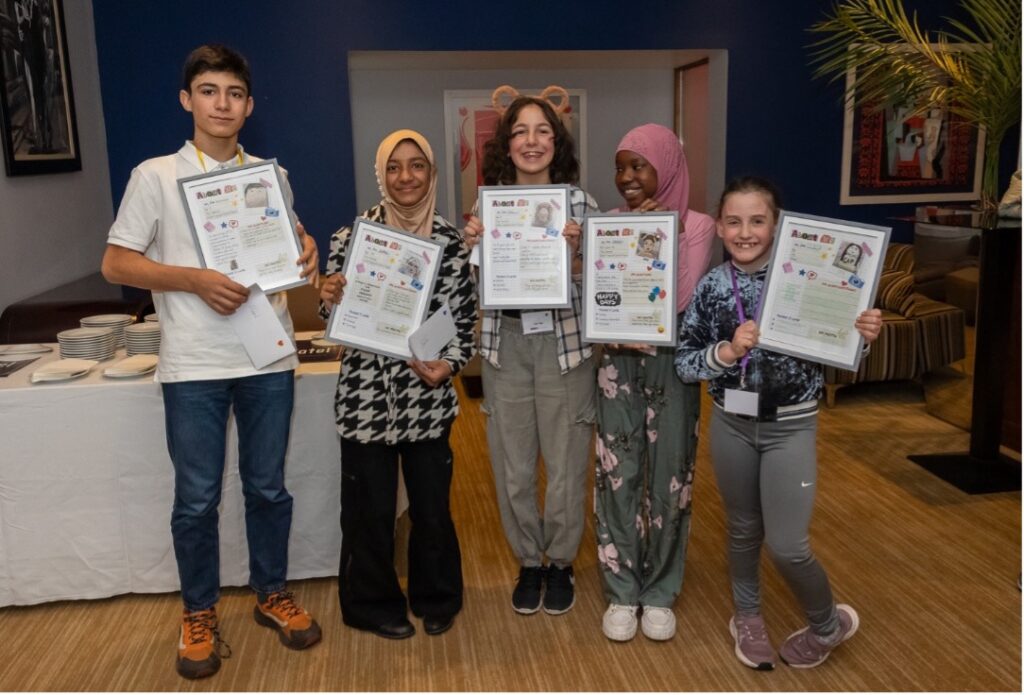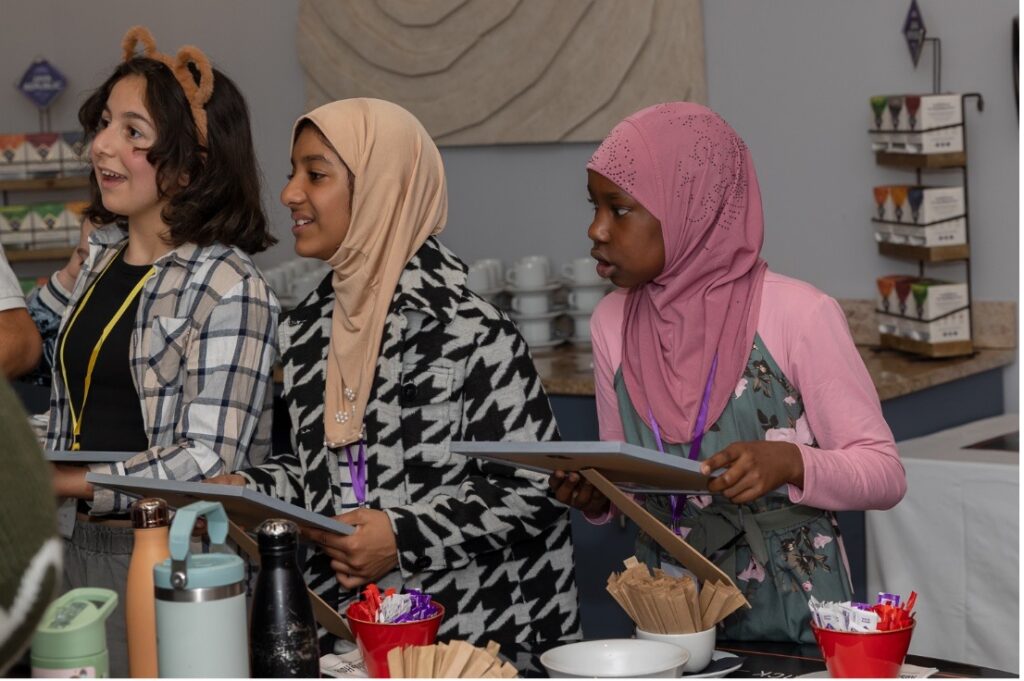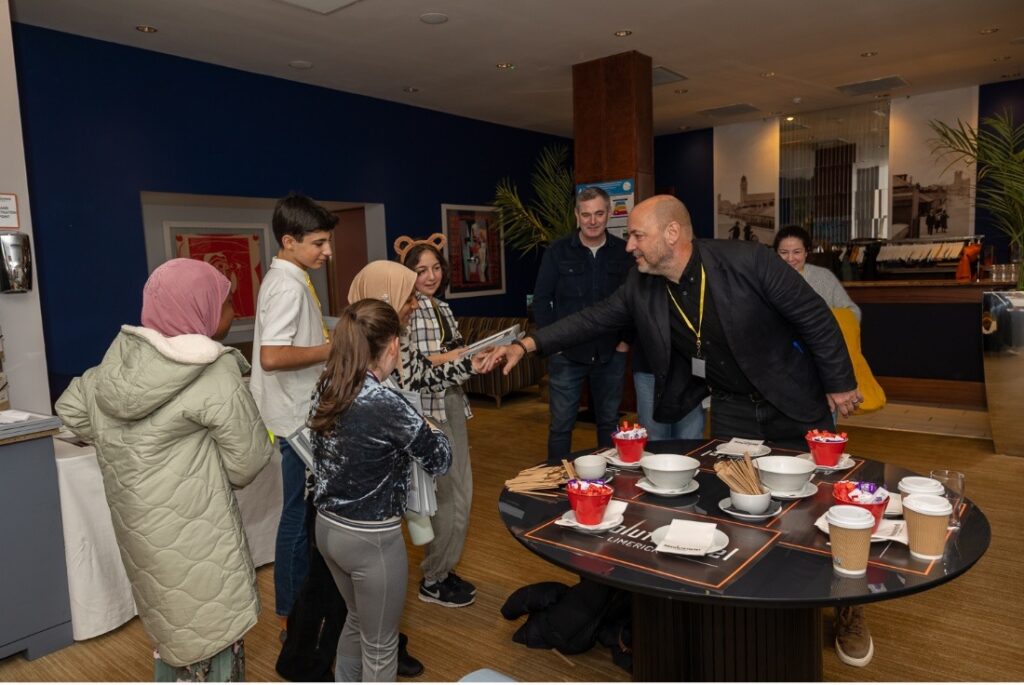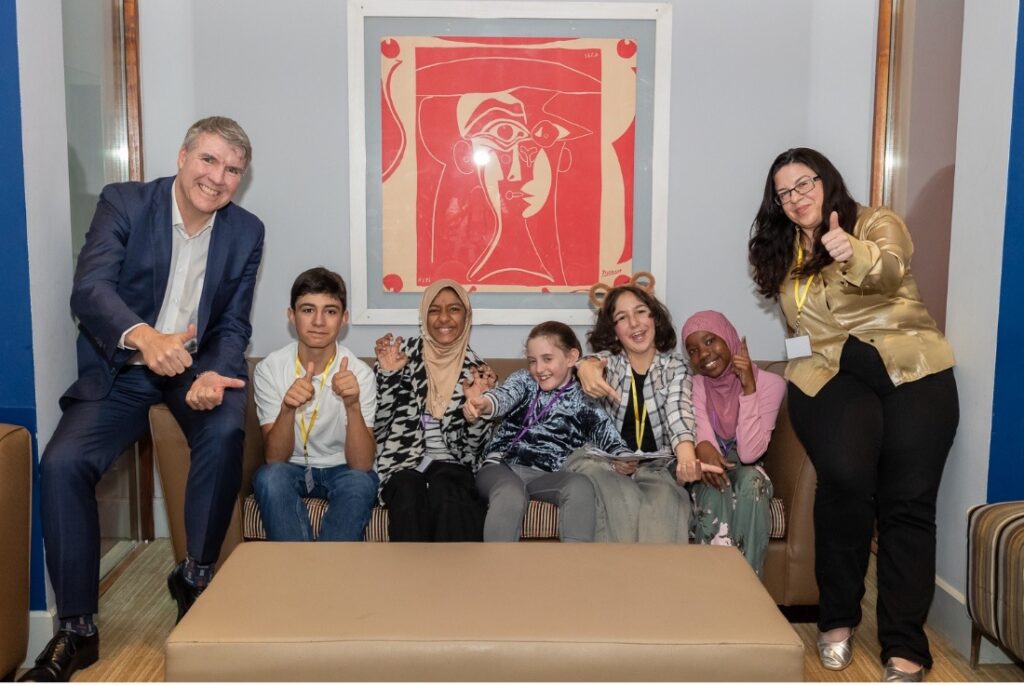Limerick School Project students: Cara, Inci, Soha, and Firdaws
Our 6th Class had the pleasure of working with Maria O’Dwyer as part of the PEI Summit, which was hosted in Limerick on October 23rd–24th. Maria worked with the whole class to gather their ideas, hopes, and views on how Ireland can be made a better place for children. Each student created an individual profile so that every voice could be heard, and from this incredible work, five pupils have been chosen to represent the class at the Summit.
A Platform for Young Voices at the PEI Summit
The PEI Summit was designed to reflect the energy and pace of the child and family services it represents and explores. Over the two days, the programme featured inspiring keynotes, poster presentations, panel discussions, a lightning round, children holding court, a live podcast, and the launch of a new PEI-focused book.
One of the most exciting parts of the Summit was the Children’s Court, where a group of children from LSP shared their thoughts on what adults in charge could do to make their lives better. The Ombudsman for Children, Dr. Niall Muldoon, and the CEO of the Children’s Rights Alliance, Tanya Ward, responded directly to their ideas.
Leadership from Students at Limerick School Project
Cara talked about inclusion and equality.
My question was, “How can we make Ireland a more inclusive place?” We were talking about maybe projecting all the nationalities in Limerick on King John’s Castle and also other ideas. Niall and Tanya said they agreed with me and they had lots of comments to add.
Inci talked about fun and colour and how we could involve it in our environment.
My question to the adults was, “Did you like art?” and “How did you think we could involve it in our environment?” Doctor Niall Muldoon, the Ombudsman for Children, and Tanya Ward, the CEO of the Children’s Rights Alliance, both agreed that art was very important. Even though they said they weren’t very good at it, they still encouraged it to happen in schools.
Dia dhuit. Soha is ainm dom.
My question was, “How did you prefer to learn?” The people we talked with, Tanya and Niall, responded by sharing their personal experiences in school. Their answers were brilliant. Both Tanya and Niall shared that, growing up, they were mischievous. They also talked about their interests. Of course, their interests were different from each other. So that proved that everyone had different ways of learning.
Firdaws spoke about homelessness.
My question was, “What year did you think it would be before every child in Ireland had a home?” What this question meant was that we all wanted everyone to have a home, and it wasn’t fair if people were living in provision centres and on the streets with no roofs over their heads. What Niall and Tanya answered was that it would take two more years before all children had a home.
This project gave us the chance to have our voices heard and to play a part in shaping a brighter, more child-friendly future for Ireland.

